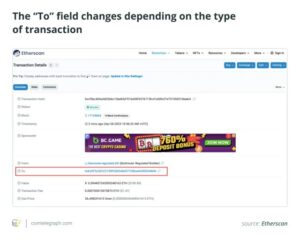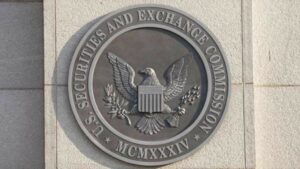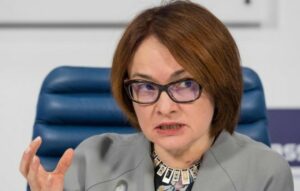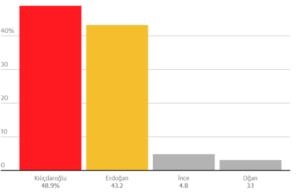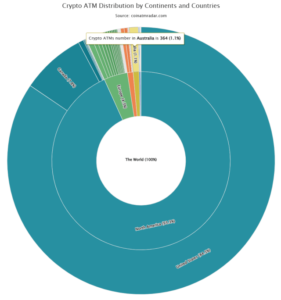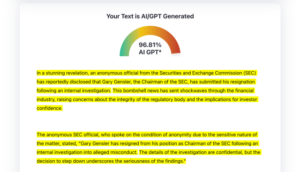
On October 12, the Nigerian central bank announced the removal of foreign exchange restrictions on the importation of 43 items. The central bank indicated that these restrictions, originally imposed in 2015, might have contributed to the devaluation of the naira on the parallel foreign exchange market.
Unification of Naira’s Exchange Rates
The Central Bank of Nigeria (CBN) declared its decision to lift foreign exchange restrictions that had been in place on the importation of 43 items. The move is aligned with the CBN’s broader objective of unifying the multiple exchange rates for the local currency while combating inflation.
In a statement explaining the removal of these restrictions, the CBN argued that the measures were compelling importers to seek out scarce resources from the parallel market. Before Nigerian President Bola Tinubu’s foreign exchange market reforms, the local currency had been trading at just under N500 per US dollar for over a year.
On the parallel market, where the US dollar was widely available, importers were forced to pay premiums of at least 20% to acquire U.S. dollars. Some economic experts believed that the official exchange rate significantly overvalued the local currency. Some even urged the central bank to devalue the naira-to-dollar exchange rate, a move that was resisted at the time.
CBN’s Forex Policy Under the Tinubu Administration
Following his inauguration as Nigeria’s new leader, President Tinubu reportedly instructed the CBN to move away from the fixed exchange rate system. The statement explaining the removal of restrictions highlighted the following:
The restrictions pushed importers to the parallel market, creating a surplus demand for foreign exchange. This led to a weakening of the parallel-market exchange rate and an increase in prices.
The central bank, now under the leadership of Olayemi Michael Cardoso, noted that the growing gap between the official and parallel market exchange rates suggested that the rate “has not been setting a clearing price.” By removing these restrictions, the CBN intends to promote “orderliness and professional conduct” and allow market forces to determine exchange rates.
The CBN also stated that the removal of restrictions would benefit local producers by providing access to cheaper imported inputs. Consumers are expected to enjoy more affordable retail products. The central bank believes that this policy change will also lead to the reopening of closed factories.
- SEO Powered Content & PR Distribution. Get Amplified Today.
- PlatoData.Network Vertical Generative Ai. Empower Yourself. Access Here.
- PlatoAiStream. Web3 Intelligence. Knowledge Amplified. Access Here.
- PlatoESG. Carbon, CleanTech, Energy, Environment, Solar, Waste Management. Access Here.
- PlatoHealth. Biotech and Clinical Trials Intelligence. Access Here.
- Source: https://coinregwatch.com/nigerian-central-bank-ends-forex-restrictions-on-43-items-embraces-market-forces-for-exchange-rates/
- :is
- :not
- :where
- 12
- 2015
- a
- access
- acquire
- affordable
- aligned
- allow
- also
- an
- and
- announced
- ARE
- argued
- AS
- At
- available
- away
- Bank
- been
- before
- believed
- believes
- benefit
- between
- blockchain
- broader
- by
- cbn
- central
- Central Bank
- Central Bank of Nigeria
- Central Bank of Nigeria (CBN)
- change
- cheaper
- Clearing
- closed
- combating
- compelling
- Consumers
- contributed
- Creating
- Currency
- decision
- Demand
- Determine
- Devaluation
- Dollar
- dollars
- Economic
- Embraces
- ends
- enjoy
- Even
- exchange
- Exchange rate
- expected
- experts
- explaining
- factories
- fixed
- following
- For
- Forces
- foreign
- foreign exchange
- foreign exchange market
- forex
- from
- gap
- Growing
- had
- Have
- High
- Highlighted
- his
- HTTPS
- imposed
- in
- inauguration
- Increase
- indicated
- inflation
- inputs
- intends
- items
- ITS
- just
- lead
- leader
- Leadership
- least
- Led
- local
- Market
- Market Exchange
- market forces
- max-width
- measures
- Michael
- might
- more
- move
- multiple
- naira
- New
- Nigeria
- Nigerian
- Nigerian Central Bank
- noted
- now
- objective
- october
- of
- official
- on
- originally
- out
- over
- Parallel
- parallel market
- Pay
- per
- Place
- plato
- Plato Data Intelligence
- PlatoData
- policy
- president
- price
- Prices
- Producers
- Products
- professional
- promote
- providing
- pushed
- Rate
- Rates
- removal
- removing
- reportedly
- Resources
- restrictions
- retail
- s
- Scarce
- Seek
- setting
- significantly
- some
- stated
- Statement
- surplus
- system
- that
- The
- These
- this
- time
- to
- Trading
- u.s.
- U.S. Dollars
- under
- us
- US Dollar
- was
- were
- while
- widely
- will
- with
- would
- year
- zephyrnet


